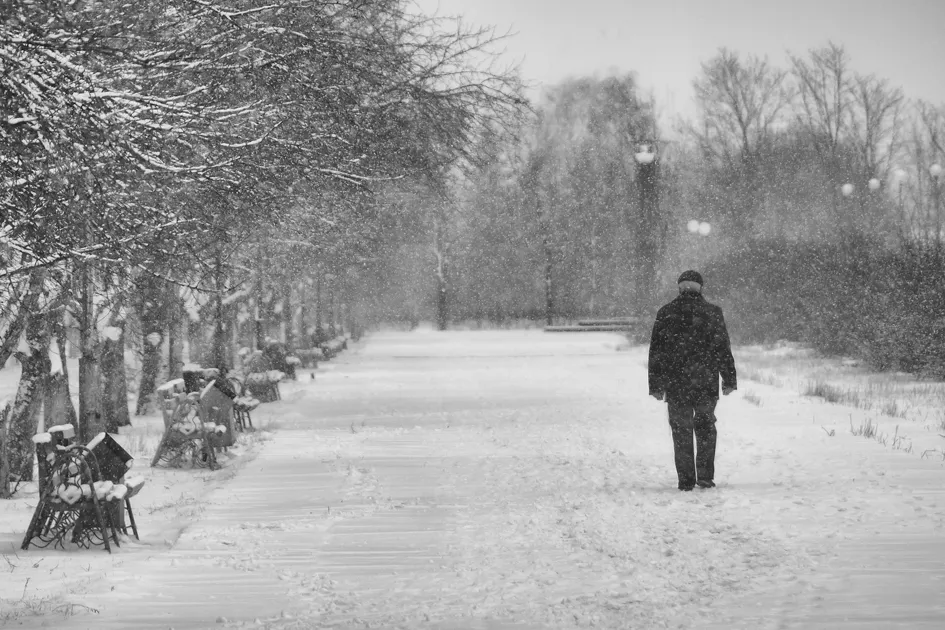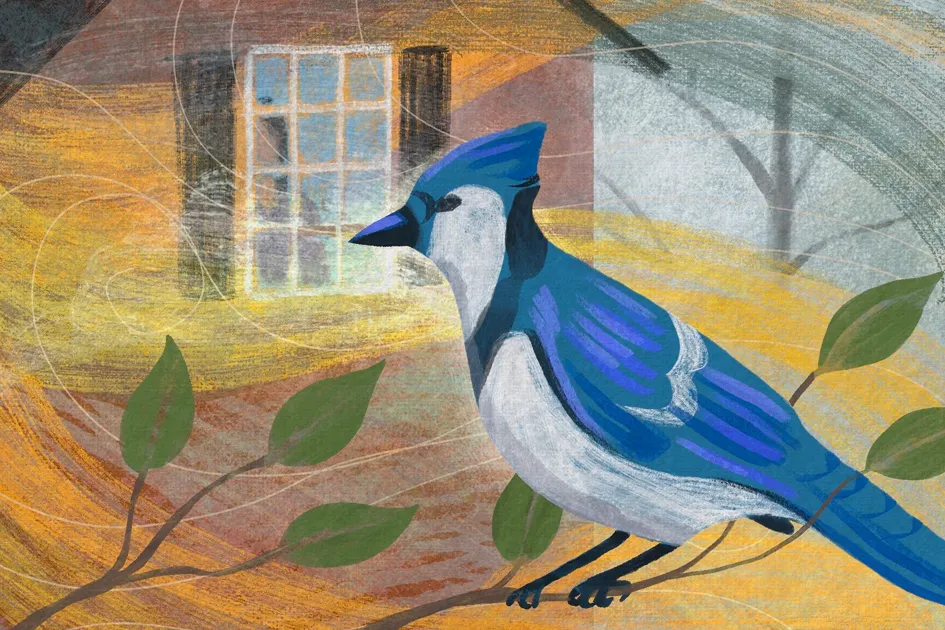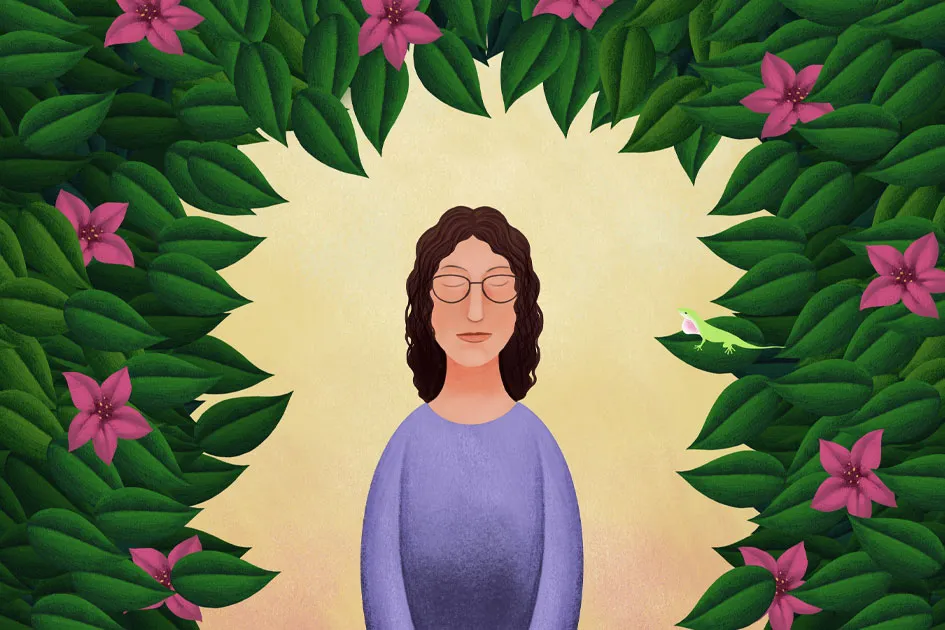All that was left in our 19-year-old’s bedroom was a tired mattress, a few pieces of unwanted clothing dangling from hangers, and packing material scattered like confetti on the floor. I prayed, Now what, Lord? but the words seemed to hit the ceiling and shatter into tiny pieces. After months of trying to work things out, there was nothing left to do but stand in the silence and grieve.
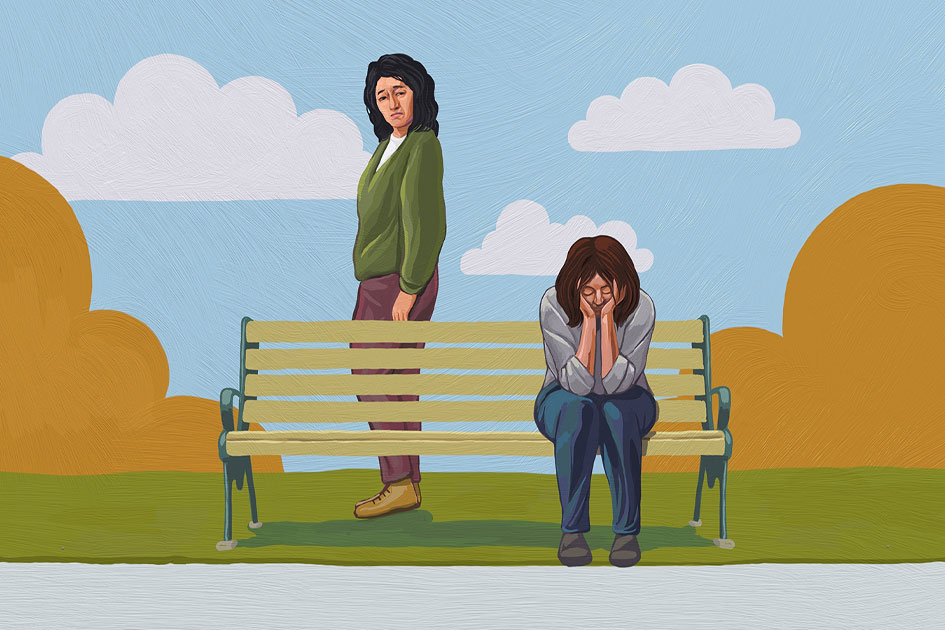 Illustration by Jeff Gregory
Illustration by Jeff Gregory
For a while, it seemed as though we were navigating a garden variety teen conflict. But my husband and I were not prepared for the way things had escalated during the last tumultuous year. After making a long series of dangerous decisions, our beloved child engaged in increasingly self-destructive behavior with increasingly toxic companions before moving out to pursue “freedom.”
Though the pain was very real, I shouldn’t have been surprised. There is a time for every movement in each season of our earthly life, the author of Ecclesiastes tells us: mourning and dancing, tearing and mending, birth and death. The beautiful symmetry found in the listed pairings of opposites (Eccl. 3:2-8) emphasizes the range and diversity of human experience. But when one season of life shifts to another, that transition can be very disorienting if it moves from a time of joy and excitement to one of loss and unwelcome change.
After our child left, I was filled with regret and continually second-guessed every parenting decision my husband and I ever made—from the type of diapers we had used to our house rules about curfew. Desperate for guidance, we reached out to well-intentioned friends. Many offered advice (much of it contradictory), which included praying more, fasting, and claiming specific though often out-of-context Bible promises for our family. Some urged offering economic help while others suggested zero financial assistance; some recommended enforcing strict boundaries while others encouraged an unconditional invitation to come home, unchanged behavior notwithstanding. At one point or another we tried most of the counsel we received, but none of it altered the trajectory of our family’s unfolding prodigal story. By the time our child moved out, we were exhausted and more confused than ever.
The author of Ecclesiastes would likely assess our situation by telling us that there was a season to raise our children, and now we’d come to a different moment when we had no choice but to watch one walk out of our lives. My grief and fear left me stuck between those “seasons” as I cycled between remembering our family’s past and battling visions of a terrifying future ahead if our child continued on the chosen path.
Thankfully, God knew what I needed most in this moment wasn't more advice, but someone who had lived through a similar hard season. And He provided just the right person for the task. My friend Cricket was a generation older than me and had lived a colorful, complicated life. I knew her from church, but we hadn’t been especially close. That changed one terrible (but healing) Saturday morning.
My husband and our other children were out, and I was alone in our home. The silence of the house once again amplified my sorrow, and I sat on the couch, fighting back tears. I was in a dark place emotionally. Was our child safe? Would there be a warm place to sleep and enough to eat? Were drugs a part of the equation? My anxiety spiked as I imagined dozens of unhappy endings to the story.
The phone rang, and as I picked up, I heard Cricket’s cheerful voice. She said, “I was just praying for you and thought I’d give you a call to see …” She paused, listening as I sniffled in an attempt to pull myself together, then quietly asked, “Michelle, are you okay?”
That question unleashed a fresh round of tears. She knew from the sound of my voice that I was far from okay. Waiting patiently until I regained a measure of composure, she said, “Take all the time you need. I’m here.”
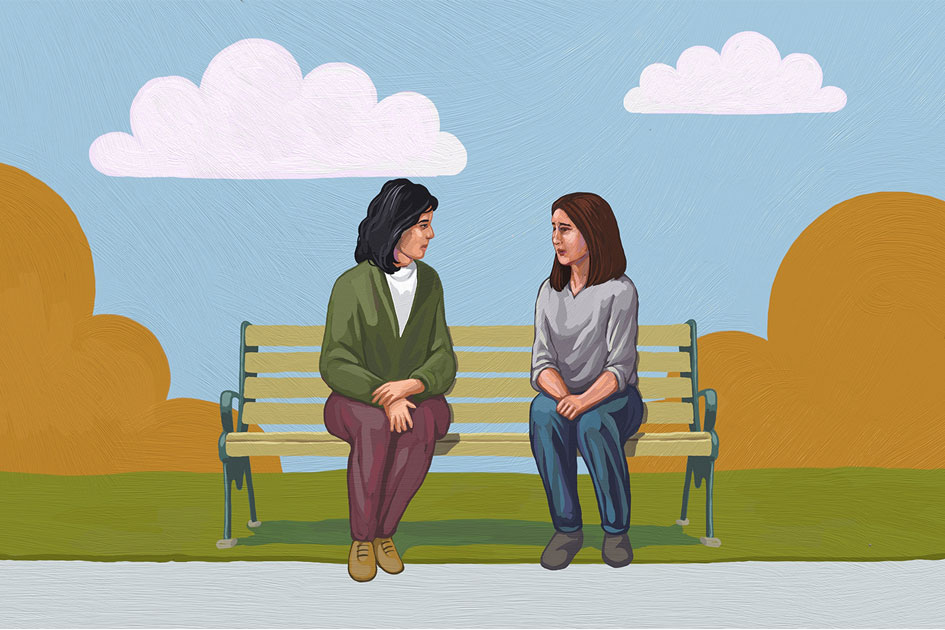
Those words gave me permission to let it all go. I wept and shook in a way I hadn’t allowed myself to before. It was as though every pent-up bit of pain, anger, frustration, and fear demanded release.
After a few minutes had passed and the tsunami of tears had been reduced to a gentle spring shower, she asked, “Did something happen?”
I told her I’d simply fallen to pieces that morning, and she listened thoughtfully as I shared my sorrows and worries about my child.
When I finished, she said, “If we live long enough, we all get a hard row to hoe, don’t we?” It wasn’t quite as poetic as how the writer of Ecclesiastes put it, but I came to learn that it was pure Cricket. This folksy saying was her way of summarizing Qoheleth’s wisdom—that sin, sorrow, and loss are part of the human experience. “Some of that pain comes from our own foolish choices,” she continued. “Some of it is the grief that comes with death. And then there’s the kind you’re experiencing right now, when someone you love is headed in the wrong direction, leaving you worried sick and powerless to do anything about it.”
Cricket’s honesty and her actions reflected Paul’s insight in 2 Corinthians 1:3-5: The comfort we receive from God in times of suffering is eventually meant to be shared with others who are hurting. Cricket went on to describe the hard days she’d experienced while raising her own children, some of whom had also made poor choices. She had no easy answers for me and offered no advice during our call. What she did was offer was so much better.
She also prayed with me before we hung up and continued to check in with me over the following months, always willing to listen and pray. Her empathy was a balm saturated with the healing love of God. While Cricket was now enjoying a happier season of life, she was willing to revisit difficult days from her past in order to walk alongside me through my own heartbreaking present.
Because of her care, I came to recognize that most of my peers who had been offering me advice were sharing formulas they’d read in parenting books or heard on Christian radio programs. The advice, good as some of it was, usually served only to make me feel more alone. What I needed was companionship, understanding, and empathy—none of which could be learned from a book or lecture. That ability to comfort has to be earned the hard way. Cricket was able to be present with and for me because she had something others hadn’t gained yet—the comfort she’d received from God during her own dark times. And she generously extended that same comfort to me.
Two decades later, our story continues to unfold. There’s no neat, tidy resolution to share. But there doesn’t have to be. This is my child’s own journey, and I must attend to mine. Cricket’s friendship, full of loving presence and mercifully free of attempts to dole out advice, is the template I now rely on when I am invited into another person’s grief and confusion. I can no more “fix” someone else’s problems than I can my own, but I can offer something beyond empty platitudes. I can step into the pain, look her in the eye, and say, “I hear you, and I’m here for you—no matter what.” And that, unlike so many things, will never change.
